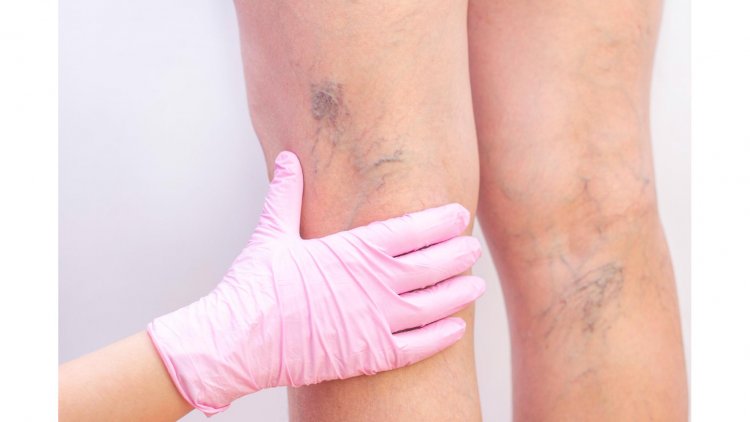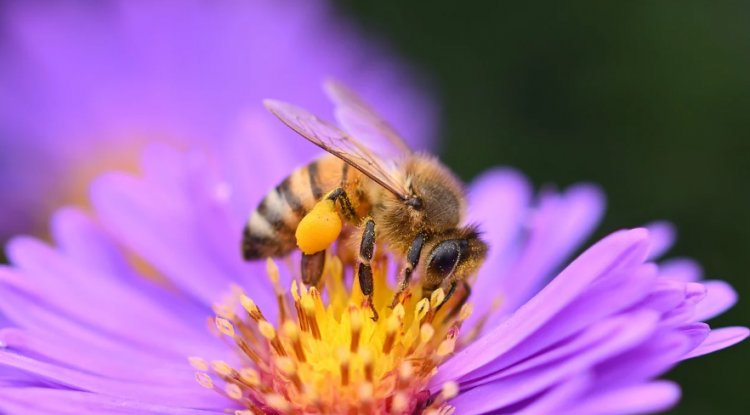Revitalize Your Veins: 6 Holistic Ways to Tackle Varicose Veins Naturally
Varicose veins, those swollen, twisted veins that often appear on the legs, are more than just a cosmetic concern. They can cause discomfort, pain, and even more severe health issues if left unmanaged. Fortunately, there are natural strategies to help reduce and manage varicose veins without resorting to invasive treatments. Here’s a detailed guide to six health tips that can help you combat varicose veins and improve your vascular health naturally.

Embrace the Power of Movement: Exercise for Healthy Veins
Regular physical activity is one of the most effective ways to promote healthy veins and reduce the symptoms of varicose veins. When you exercise, you stimulate blood flow and improve circulation, which helps to prevent blood from pooling in the veins.
- Engage in Low-Impact Activities: Activities such as walking, swimming, and cycling are particularly beneficial. These low-impact exercises enhance overall circulation without putting excessive pressure on the legs. Walking, in particular, helps activate the calf muscles, which act as a natural pump to aid blood flow back to the heart.
- Incorporate Strength Training: Incorporating strength training exercises, such as leg lifts and calf raises, can also be beneficial. These exercises help build muscle strength in the legs, which supports the veins and improves circulation.
- Avoid Prolonged Periods of Inactivity: If you have a sedentary job or lifestyle, make it a habit to take breaks and stretch your legs every hour. Simple stretches and brief walks can help keep blood flowing and reduce the risk of varicose veins.
Elevate Your Legs: The Simple Trick to Relieve Pressure
Elevating your legs is an effective way to alleviate pressure on the veins and reduce symptoms associated with varicose veins. By elevating your legs, you help gravity assist in returning blood to the heart, reducing the amount of pressure in the veins of the lower legs.
- Practice Elevation Regularly: Aim to elevate your legs several times a day, especially after long periods of standing or sitting. Elevating your legs at a 45-degree angle for about 15 to 20 minutes can significantly reduce swelling and discomfort.
- Use Pillows or Leg Rests: You can use pillows or specialized leg rests to keep your legs elevated while resting or sleeping. This simple adjustment can make a significant difference in how you feel.
- Combine with Other Techniques: Combining leg elevation with other techniques, such as compression stockings or leg exercises, can amplify the benefits and provide more comprehensive relief from varicose vein symptoms.
Choose a Balanced Diet: Nutrients for Vein Health
A well-balanced diet plays a crucial role in maintaining vascular health and preventing the progression of varicose veins. Certain nutrients support vein strength and improve circulation, while others help reduce inflammation and oxidative stress.
- Increase Fiber Intake: A diet high in fiber helps prevent constipation, which can contribute to the development of varicose veins by increasing pressure in the abdominal cavity. Foods rich in fiber include fruits, vegetables, whole grains, and legumes.
- Incorporate Antioxidant-Rich Foods: Antioxidants help combat oxidative stress and inflammation, which can damage veins. Include foods high in antioxidants, such as berries, citrus fruits, and leafy greens, in your diet.
- Stay Hydrated: Proper hydration is essential for maintaining healthy blood flow and preventing vein issues. Drink plenty of water throughout the day and avoid excessive consumption of caffeine and alcohol, which can dehydrate the body.
- Choose Healthy Fats: Incorporate healthy fats, such as those found in avocados, nuts, and fatty fish, into your diet. These fats support overall vascular health and reduce inflammation.
Manage Your Weight: The Impact of Body Weight on Vein Health
Maintaining a healthy weight is vital for reducing the risk of varicose veins and managing existing symptoms. Excess body weight puts additional pressure on the veins in the lower extremities, leading to increased strain and the potential for vein issues.
- Aim for a Balanced Diet and Regular Exercise: Combining a balanced diet with regular physical activity is the most effective way to manage your weight. Focus on nutrient-dense foods and incorporate a variety of exercises into your routine.
- Monitor Portion Sizes: Be mindful of portion sizes to avoid overeating. Eating smaller, more frequent meals can help regulate appetite and support weight management.
- Consult with a Professional: If you struggle with weight management, consider seeking guidance from a healthcare professional or a registered dietitian. They can help you develop a personalized plan that suits your needs and lifestyle.
Wear Compression Stockings: Supportive Gear for Vein Health
Compression stockings are specially designed to apply gentle pressure to the legs, which helps improve blood circulation and reduce the symptoms of varicose veins. They come in various types and compression levels, allowing for personalized support.
- Choose the Right Type: Compression stockings are available in different lengths and compression levels. Consult with a healthcare professional to determine the most appropriate type and level of compression for your needs.
- Wear Them Consistently: For maximum benefits, wear compression stockings throughout the day, especially during periods of prolonged standing or sitting. Ensure they fit properly to avoid discomfort or restricted blood flow.
- Care for Your Stockings: Follow the manufacturer’s care instructions to maintain the elasticity and effectiveness of your compression stockings. Regular washing and proper storage will help extend their lifespan.
Incorporate Herbal Remedies: Natural Support for Vein Health
Several herbal remedies are believed to support vein health and alleviate symptoms of varicose veins. These natural options can complement other lifestyle changes and provide additional relief.
- Horse Chestnut Extract: Horse chestnut extract is known for its potential benefits in improving vein tone and reducing inflammation. It contains a compound called aescin, which may help strengthen vein walls and improve circulation.
- Butcher’s Broom: Butcher’s broom is an herb traditionally used to reduce symptoms of venous insufficiency, such as swelling and pain. It is believed to improve blood flow and strengthen veins.
- Grape Seed Extract: Grape seed extract is rich in antioxidants and may help support vascular health. It is thought to improve circulation and reduce symptoms of varicose veins.
- Consult with a Herbalist or Healthcare Professional: Before starting any herbal remedies, it’s important to consult with a healthcare professional or a qualified herbalist to ensure they are safe and appropriate for your specific health needs.
Incorporating these natural health tips into your daily routine can make a significant difference in managing and reducing the symptoms of varicose veins. From embracing regular exercise to adopting a balanced diet and exploring herbal remedies, a holistic approach to vein health can lead to noticeable improvements. Remember that while these strategies can be beneficial, it's important to consult with a healthcare professional for personalized advice and treatment options.
Holistic Harmony: Your Path to Healthier Veins
Integrating these health tips into your daily routine can create a powerful synergy that enhances vein health and reduces the discomfort associated with varicose veins. Embracing a combination of movement, dietary changes, and natural remedies provides a comprehensive approach to managing and preventing varicose veins. By prioritizing regular exercise, a balanced diet, proper hydration, and supportive gear like compression stockings, you can foster a healthier vascular system and alleviate the symptoms of varicose veins. Additionally, herbal remedies offer a natural complement to these lifestyle changes, potentially providing further relief and support.
Making these adjustments may take time and consistency, but the benefits for your vein health and overall well-being can be profound. Remember to consult with healthcare professionals to tailor these strategies to your specific needs and conditions. A proactive and informed approach to managing varicose veins can lead to improved comfort and quality of life.
Disclaimer: The information provided in this article is for educational purposes only and should not be considered medical advice. If you have any health concerns or are experiencing symptoms, it is important to consult with a healthcare professional, such as a doctor or clinic, for proper diagnosis and treatment. Always seek the advice of your doctor or other qualified health provider with any questions you may have regarding a medical condition. Do not disregard professional medical advice or delay in seeking it because of something you have read in this article.
What's Your Reaction?





















